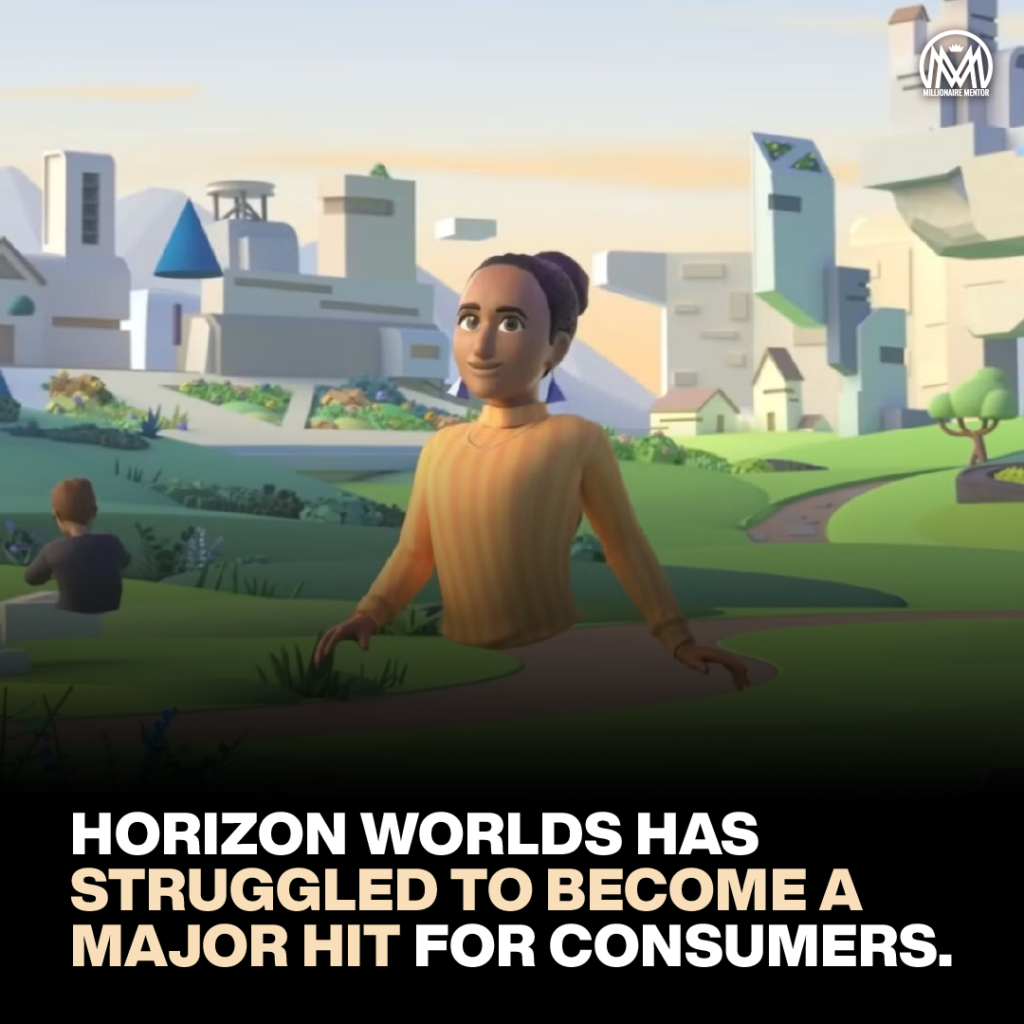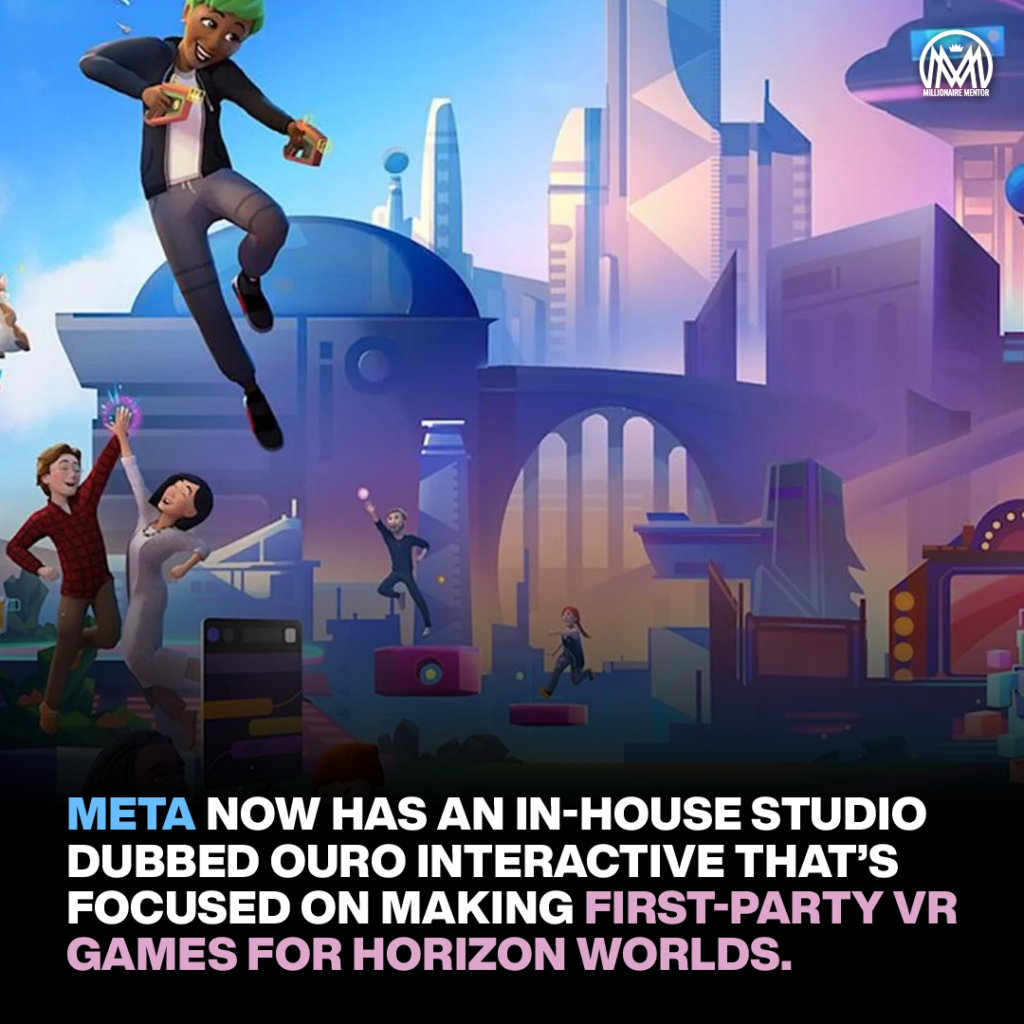In the dynamic world of virtual reality (VR), technology giant Meta, formerly known as Meta is rebooting its Horizon Worlds platform as it grapples with the challenges of fostering widespread adoption and growth within the VR industry. As the quest for mainstream acceptance continues, Meta’s strategic move signifies the determination to overcome obstacles and create a more immersive and enticing virtual experience for users worldwide. This article will delve into the reasons behind Meta’s decision to revamp Horizon Worlds and explore the hurdles the VR industry faces on its path to mass popularity.
The Virtual Reality Landscape.
Virtual reality has long been hailed as the next frontier in technology, promising to revolutionize how we interact with digital content and connect with others across the globe. From gaming and entertainment to education and social interaction, VR has shown immense potential. However, despite early excitement and considerable investments from major tech companies, widespread adoption has been slower than expected.
Challenges Hindering VR Growth.
Several factors have contributed to the VR industry’s sluggish growth:
High Costs: Acquiring VR hardware and compatible devices has traditionally been an expensive affair, preventing many potential users from entering the VR ecosystem.
Limited Content: While there is an impressive array of VR content available, it still lags behind traditional media in terms of sheer quantity and diversity.
Motion Sickness: Motion sickness remains a significant concern for some VR users, which hampers their enjoyment and can lead to disinterest.
Social Isolation: Although VR offers opportunities for social interaction, the experience still falls short of replicating the natural human connection.
Technical Barriers: Setting up and configuring VR systems can be complex and intimidating for non-tech-savvy individuals, limiting accessibility.
Meta is Rebooting Horizon world.
In response to these challenges, Meta has taken the bold step of relaunching its social VR platform, Horizon Worlds. The original Horizon platform was introduced with great promise, intending to enable users to build their VR experiences, interact with others, and explore a boundless universe of possibilities. However, it failed to gain the traction that Meta had hoped for.
The reboot of Horizon Worlds comes with a renewed focus on addressing the shortcomings of its predecessor. Meta aims to make the platform more user-friendly, visually captivating, and socially engaging. By leveraging their vast resources and technological expertise, Meta aims to bring VR closer to mainstream audiences, removing barriers to entry and making the platform more appealing to a broader demographic.
Key Features and Improvements.
Enhanced Social Interaction: Meta plans to incorporate more natural and lifelike social interactions, allowing users to connect with friends, family, and like-minded individuals in a more authentic way.
Intuitive Creation Tools: To empower users and inspire creativity, Horizon Worlds will offer streamlined and user-friendly tools for building VR experiences, making it easier for individuals to contribute to the platform’s content library.
Cross-Platform Accessibility: The revamped platform will be designed to work across various VR devices and even on non-VR platforms, making it accessible to a wider audience.
Diverse Content Ecosystem: Meta intends to collaborate with developers and creators to curate a diverse range of content, from games and simulations to educational experiences and beyond.
Improved Motion Tracking: Addressing motion sickness concerns, Meta plans to refine motion tracking algorithms, creating a more comfortable and immersive experience.
As the VR industry continues to evolve, Meta’s decision to reboot Horizon Worlds demonstrates its unwavering commitment to the advancement of virtual reality technology. By recognizing the hurdles preventing mass adoption, Meta seeks to break down barriers and foster the growth of an increasingly inclusive VR ecosystem. While challenges persist, the future of VR remains bright, and with industry leaders like Meta pushing boundaries and investing in innovation, we can expect exciting developments in the world of virtual reality in the years to come.


Trending News Articles
 Learn The Best Methods To Market Your Business Onlineby Jason Stone●July 24, 2017
Learn The Best Methods To Market Your Business Onlineby Jason Stone●July 24, 2017 This is amazing! Look at all the details …by Jason Stone●April 23, 2023
This is amazing! Look at all the details …by Jason Stone●April 23, 2023 You’ll NEVER Look At MOTIVATION The Same – Jocko Willink and Jordan Petersonby Jason Stone●November 12, 2020
You’ll NEVER Look At MOTIVATION The Same – Jocko Willink and Jordan Petersonby Jason Stone●November 12, 2020 Mastery In Real Estate Investmentby Jason Stone●January 12, 2017
Mastery In Real Estate Investmentby Jason Stone●January 12, 2017





